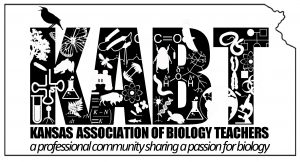Inquiry in AP Biology
The recently implemented AP Biology curriculum has placed an increased focus on science practice skills. In an effort to properly reflect this in my classroom, I made the decision to build my final unit around an open inquiry investigation. The unit was ecology, and the results were so positive that I plan to use some of the lab ideas in other courses this coming year.
My students’ time in the lab over the course of the year was marked by struggle. This is true most years, and while there was tremendous growth I wasn’t really sure what to expect from them with so much freedom. Their projects were tremendous, and I can identify one specific behavior that I know had a significant effect on their success: early feedback.
We participated in peer review in AP Biology several times throughout the year. Whenever we have a peer review session, I model it closely after the professional peer review process in the scientific community. To ensure students are critical and offer useful questions and suggestions I have begun implementing a surprising rule: “If you have something nice to say, don’t say anything at all.” It’s the opposite of the usual adage, but the policy prevents group-think and removes the stigma associated with critique. The atmosphere is still positive and focused on growth. I offer support and positive reinforcement myself, but the students must only ask questions or offer criticism. At first they hate it, but by the end of the year I have found they usually keep the mentality in all discussion settings and we have more productive debate and argument as a result.
The peer review was a critical aspect of the investigation report because we used it at the most critical moment in the life of an experiment, the beginning. Groups performed background research and formulated a prelab proposal, and we spent a full class day discussing the proposals. Nearly every student group had a question that was not acceptable at the beginning, but as a class they revised each question to create true driving questions. Students asked each presenting group questions like, “Well how are you going to measure that?” or, “What part of that question are you REALLY curious about?” I mostly listened, and together each group shared what they had and walked away with actionable next steps. If I could have such productive and thought-provoking discussions every day in class, I would do nothing else all year.
There were plenty of things about the project that I need to improve (my time management between work time and other instruction and how to properly implement the modeling aspect of the project to name a couple). Even with the challenges, it was a rich experience for everyone. I vividly remember one group who stayed after school for an hour to troubleshoot their design. I did little more than watch as they scribbled all over my class whiteboard discussing their variables, identifying constants, and making predictions. At the end, one of my students that had struggled with the inquiry environment the most (very traditionally successful and was not comfortable with risk) turned to me and asked, “Is THIS what researchers do, because this is awesome.” They were ENJOYING their difficulties, and I am getting goosebumps again now just writing about it. Often AP teachers point to the breadth of curriculum we must cover as an excuse to avoid such open projects, myself included. It was a risk I was very glad I took.
Anyone interested in seeing the investigation handout I provided the students, the document can be viewed here.




I know not everyone has an AP section, but this stuff is applicable in general biology classrooms too. I made a comment to that effect on the Biology Rocks blog here: http://wp.me/p4PfB2-K